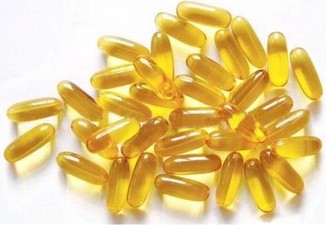Omega-3 fatty acid (¦Ø−3 fatty acids or omega-3 fatty acids)
Update£º2014-01-29 10:33:46 Click£º
- Product Brand AUS
- Product type
Description
Product Name£ºOmega-3 fatty acid (¦Ø−3 fatty acids or omega-3 fatty acids)Definition£º
n−3 fatty acids include ¦Á-linolenic acid (ALA), eicosapentaenoic acid (EPA), and docosahexaenoic acid (DHA), all of which are polyunsaturated. The human body cannot synthesize n−3 fatty acids de novo, but it can form "long chain" 20-carbon unsaturated n−3 fatty acids (like EPA) and 22-carbon unsaturated n−3 fatty acids (like DHA) from the "short chain" eighteen-carbon n−3 fatty acid ¦Á-linolenic acid. The short chain n−3 fatty acids are converted to long chain forms (EPA, DHA) with an efficiency of approximately 5% in men, and at a greater percentage in women.
Biological significance£º
There is strong scientific evidence that n−3 fatty acids reduce blood triglyceride levelsand regular intake reduces the risk of secondary and primary heart attack.
Some benefits have been reported in conditions such as rheumatoid arthritis and cardiac arrhythmias.There is preliminary evidence that n-3 fatty acids supplementation might be helpful in cases of depression and anxiety.Studies report highly significant improvement from n-3 fatty acids supplementation alone and in conjunction with medication.
The New York Times reports that at least one study, however, has found no connection between depression in heart patients and supplements containing n-3 fatty acids.Some research suggests that fish oil intake may reduce the risk of ischemic and thrombotic stroke.However, very large amounts may actually increase the risk of hemorrhagic stroke (see below).
Indication£º
Cancer prevention
Several studies report possible anti-cancer effects of n−3 fatty acids (particularly breast, colon and prostate cancer).[40][41][42] Omega-3 fatty acids reduced prostate tumor growth, slowed histopathological progression, and increased survival.
Cardiovascular disease prevention
In 1999, the GISSI-Prevenzione Investigators reported in the Lancet, the results of major clinical study in 11,324 patients with a recent myocardial infarction. Treatment 1 gram per day of n−3 fatty acids reduced the occurrence of death, cardiovascular death and sudden cardiac death by 20%, 30% and 45% respectively.[49] These beneficial effects were seen already from three months onwards.
Immune function
It was found that those infants supplemented with fish oil had improvement in immune function maturation with no apparent reduction in immune activation.
Brain health
Fish oil may help prevent psychotic disorders in high-risk children and adolescents.[61] A novel fish oil known as E-EPA may prevent memory impairment[62] and speed up recovery from major depression[63] There was yet another study on n−3 fatty acids published in the April 2007 Journal of Neuroscience.
Anti-Inflammatory
Research in 2005 and 2006 has suggested that the in-vitro anti-inflammatory activity of n−3 acids translates into clinical benefits.
More









